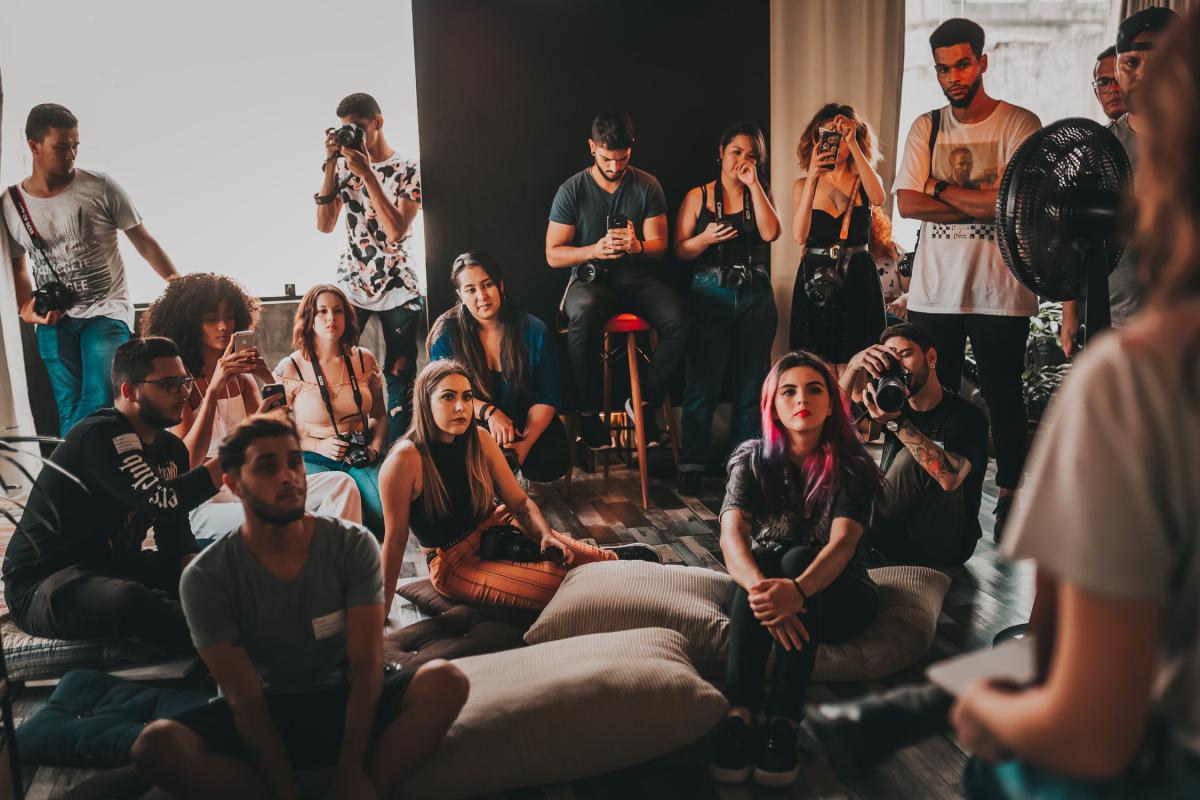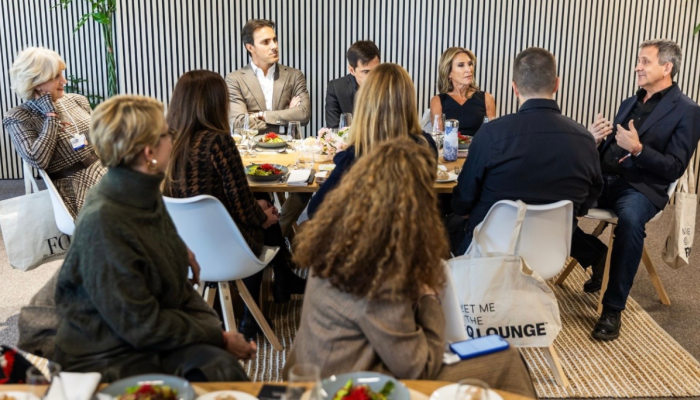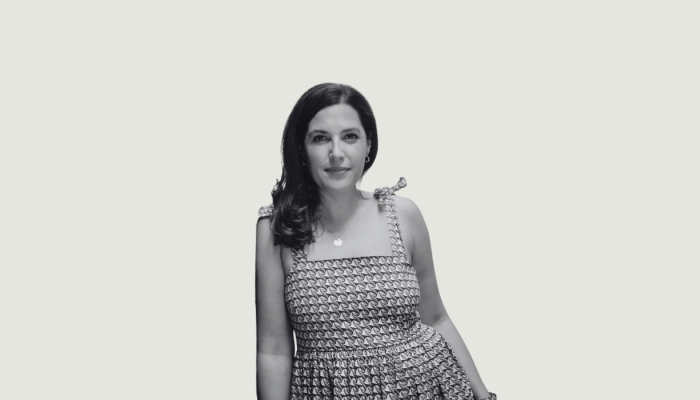When setting up an online community, there are dozens of hurdles and common pitfalls. How do you find your niche? How do you build trust with members? And how do you invest in the future of your community?
This was the topic of a panel we hosted at this year’s Brighton Music Conference, hosted by the lead admin of the Identification of Music Group and BUMP agency, Robbie Murch.
What do rave culture, football managers, and developers of crypto tech have in common? How can ‘community’ and ‘money’ go in the same sentence without feeling taboo?
To answer these questions, we invited Omar Ismail (Founder of Temple), Jack Collins (co-host of the Ranks FC podcast), and Niks Delanancy (co-founder of the Black Artists Database) to discuss what you can do to nurture your own online community and get it noticed by others.
We also spoke about moderation, monetising creative editorial, and the difference between traditional subscription platforms and emerging technologies.
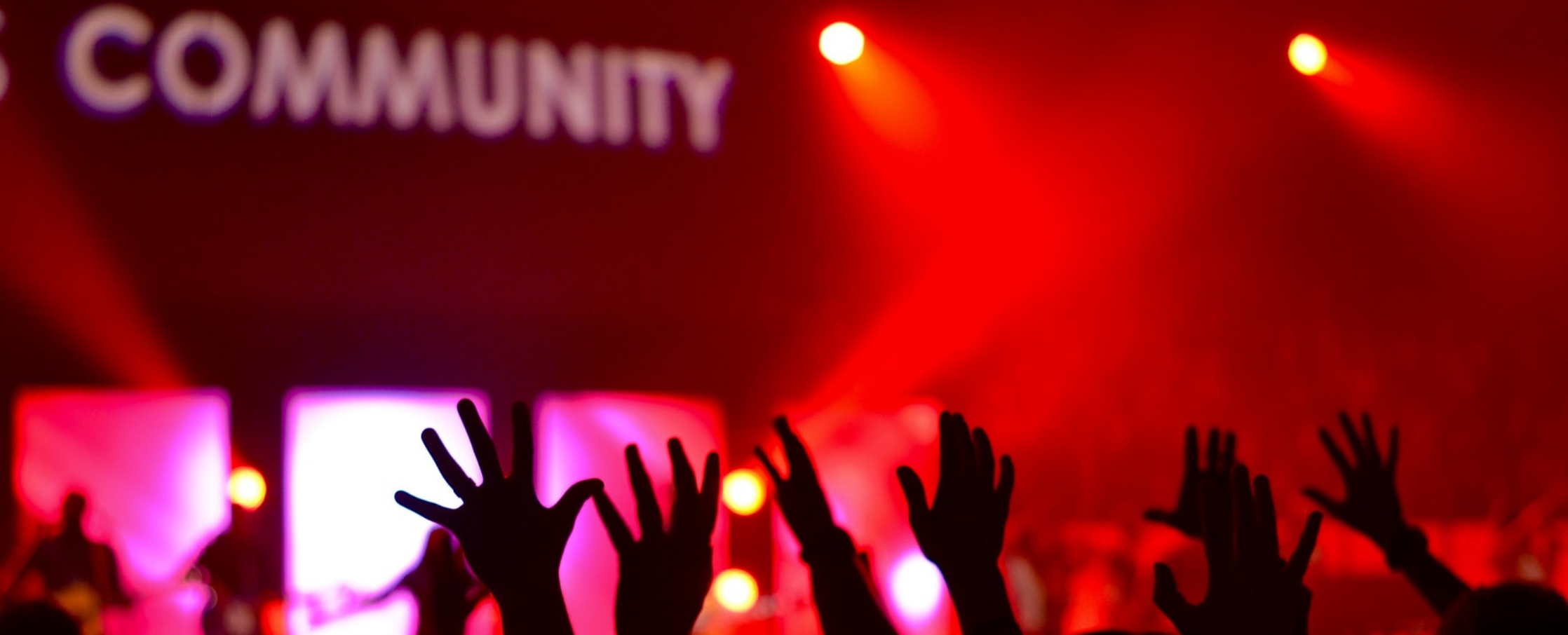
Here were three key takeaways from the discussion for building and maintaining successful online communities.
How to find a niche
Without a niche, or a unique focus for your group, it’s hard to stand out from the noise of the countless other online communities.
Branding yourself in such a way that you do “what it says on the tin”, is key to attracting people who share obsessions and passions of some kind.
For Niks Delanancy, who founded a group which unites Black musicians, promoters, and other creatives “what’s important is that it’s a nice group of people.”
She said: “So the Black Artists Database - that’s all black artists. That’s the niche component and they’re made to feel part of the community because we all share one common denominator.”
“That sounds exclusive, but it’s not, it’s honing on a commonality. And that’s what is pivotal to a lot of communities, whether it’s being into underground music or anything.”
Nicks noted how for the Identification of Music group, “there’s something specific that is a common denominator for people in the community. And the exclusive side of it is making them feel nurtured, you know like you’re part of this community because of who you are, what it is you believe, or whatever it is.”
When asked by an audience member for tips on how to find untapped unique and inclusive communities, she suggested it’s a matter of timing.
“[The Black Artists Database] was really lucky in that everything happening in a global context has been on our side, and pushed us. Just in June 2020, there was a lot of noise being made around what dance can be doing better to serve the community that founded and started the sound, which is also inclusive of queer people, and we were able to cut through the noise.”
“So every time there’s a new paradigm shift, there’s a new narrative, so if you’re smart you can actually try and think, where’s a gap, where’s a void that can be filled,” she said.
Jack Collins, co-host of the Ranks FC podcast and discord community, echoed this sentiment, noting that his podcast would not have been as successful if it was started just three years later.
He said: “My experience is less politically charged [than Niks’], but if I’d started around three years after when we did, we would not have existed because we were just at the edge, or the end of the point where you could launch a podcast about football and just about get away with it.”
He added: “Obviously, there are lots of massive podcasts, but there is an element of being the best at the niche you do. So get yourself that niche element. Ours was always, stay away from the exact things happening at the moment and [...] give them something just a little bit different to what they’re giving to every other news outlet”.
And if you’re direct about marketing your community, it’s only a matter of time until people who are interested start to find you. As Omar Ismail told us: “There’s five billion people on the internet, so even if you’ve got a very, very niche concept for a community, there will probably be 100 people, 100 freaks out there who will want to join.”
Building trust with members
And once you’ve started to build an active community, it's important to build trust with your members. One key way to do this is to remain authentic and work with ambassadors, who can shout praise for your community.
Omar Ismail, whose start-up Temple focuses on giving social tokens as financial rewards to members as they get more involved, said: “It’s much more authentic to have real people talking and loving your brand so community is definitely not a fad.”
In fact, he said: “community is becoming more and more essential for every single business. With my start-up, it’s definitely something that I realise the importance of having a community presence within the Web3, within the crypto world. It’s one thing to have a crypto start-up, but unless you’re actively online, engaging with other creators, other developers, other content creators, and actually being part of something bigger than yourself, it’s a very very hard sell."
“You can have a great product, but you really need to have the ambassadors on your side to make any progress. [...]You need general people being ambassadors of your brand, you can’t just shove marketing down their throats.”
As Jack Collins describes it, it’s important to scale this involvement for members at different levels. While die-hard fans will want to be involved as much as possible, some more casual members might just want to lurk, and it’s important to cater for both.
“The way I kind of look at it is, we have different stratospheres. If you want to come in and listen to the podcast, fantastic, we’re delighted - welcome aboard. But you’ll never get 100% of people who will take a free product and will want to buy further into it, and that’s fair enough” Jack said.
“Only 500 might want to become part of an active community which chats. Is a fan someone who wants to get involved every month? Is it someone who wants to chat on a Discord server every day? Is it someone who just feels like they can be a part of a wider net of people who all vaguely like the same thing? For me it doesn’t matter. It’s about feeling like you belong and that would mean different things to different people.”
Often, once you reach this point, communities become more and more self-sustaining. Members will moderate their own and others posts, and find an inherent reward and sense of purpose to taking part in the community.
But as we’ve seen with the Identification of Music group, this trust can go further when you allow community members to be involved in making the content which other members are consuming. As Robbie Murch noted, when members “do it for you, you shout them out, you uplift them, you tag them, and that empowers everyone”.
Investing in the future of your community
This empowerment of a self-sustaining community can manifest in many ways. For some members, the reward of taking part is enough. But what Omar sees as the future of communities is a picture that is much more decentralised and horizontal.
He described how social tokens and DAOs [Decentralised autonomous organisations] are pushing forward a new model of community relationships without admins, or central involvement, which financially motivates people to be a positive influence in their online communities.
“The key difference between paying a traditional subscription [and social tokens], is that I as a fan am actually now economically aligned.. As a group blows up and gets more popular, as an early adopter and a fan I have actually financially benefited from that,” he said.
“The flip side of that as well is, I as a fan am actually incentivized to grow and nurture that community. It’s not just something I’m doing for fun, it’s something that I’ve got a stake in. That’s how it should be when you think of community. If I’m an active community member on Discord, I’m posting every day, sharing really cool content, moderating the group, telling all my friends about it, why am I not getting a reward from that?”
Our panel spoke extensively about the ways you can be smart with monetising online communities, in ways that aren’t exploitative and re-invest in the community, with members getting various benefits, and gave some essential advice on remaining authentic as you begin to grow, scale, work with brands and monetise your community.
Niks Delanancy of the Black Artists Database explained: “There’s almost this negative connotation of using the words ‘community’ and ‘money’ in the same sentence, because people, rightly so, view community as something that matters. But I can’t grow a community without money, right?”
“I think there’s a happy medium there where you and your community can utilize the resources and skills and the clout that you have amongst you to monetise and help the community grow, platform grow. But you should have a list of your own personal terms and conditions. So what are you prepared to associate with, or do, or be, and what are you not. So when a brand pitches something to you, you can go through and say if it fits in the lines, then OK.”
“You have to ask what do I want to do, what can I do, that kind of stuff, and just see how much it does or doesn’t align.”
And this trend isn’t one just being adopted by smaller start-ups, as Jack Collins noted, it’s a methodology even being adopted by communities (and businesses) as large as football clubs like Inter Milan and Roma, who are implementing the decentralised crypto platform Socios to give their community more control on how to shape their association.
He explained: “Basically it means when you buy into a club that you support, you belong to a club more than perhaps you would as a member or as a season ticket holder. And there’s a lot of things you can vote on, like what kit Inter Milan wear in any given game.”
“You feel like you’re buying into it and it’s not a gigantic multi-corporation business, in the way that perhaps such a gigantic behemoth football club is. You feel like you’re empowered and able to have a say, and in the communities that we are creating, or curating, that is a far more worthwhile pursuit because of how it allows people to integrate.”
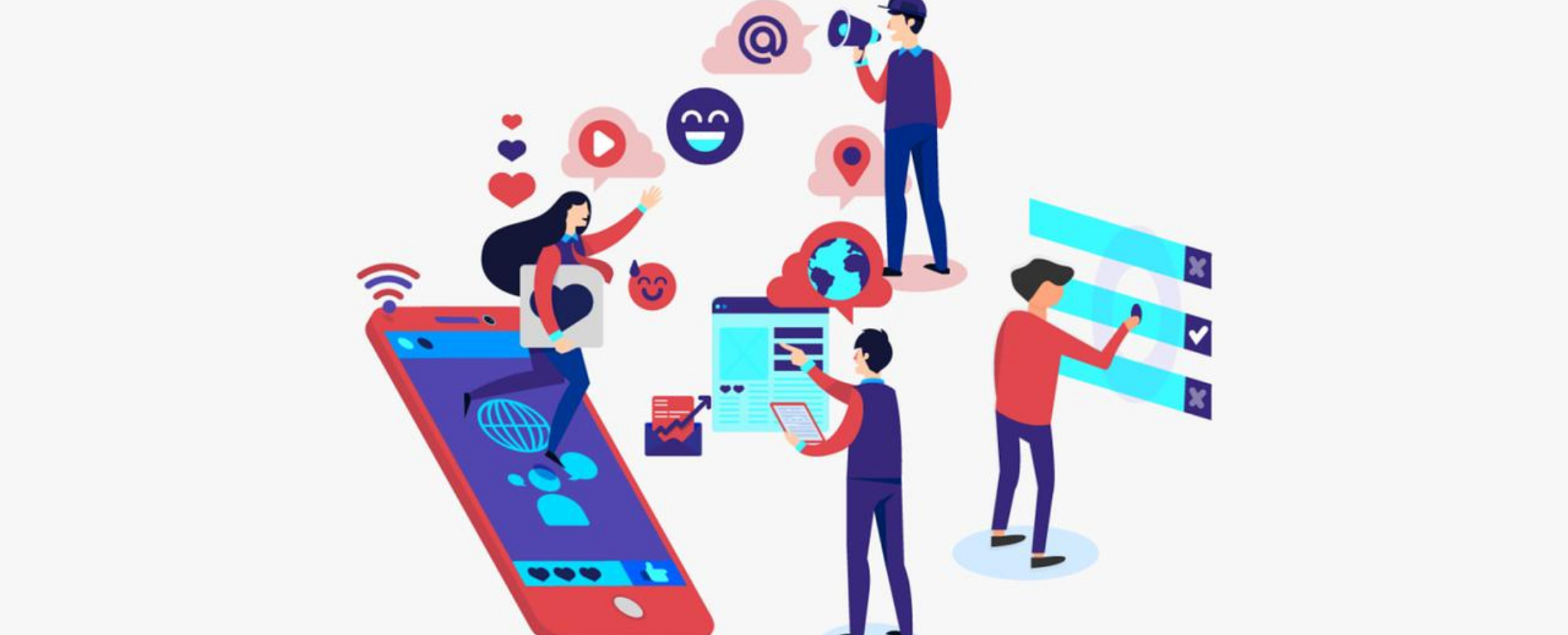
When it comes to starting an online community, it’s important to have a niche. Whether you run a podcast about football or are behind a start-up crypto wallet tech company, there’s going to be hundreds or even thousands of equally passionate individuals who want to connect online. Just make sure your own community has something unique, to stand out from the crowd.
Once you’ve got a community that’s starting to get traction, trust with members is key. If members feel they’re being exploited or underappreciated in any way, they’ll go somewhere else. Choosing admins to shout praise for your community is key, and it’s important to think about scale for the die-hard supporters who want to be deeply involved, and for the more casual lurkers too. From here, groups often become self-sustaining, with content produced and shared within the group.
In a similar vein, you have to keep investing in the future of your community. Not just emotionally, but financially. Money can be a dirty word when it comes to community, but as Niks of the Black Artists Database said: “I can’t grow a community without money”.
Whether its subs, patronage schemes, rewards, or the use of insights - your community has something valuable to offer, both to you and members. But be smart with what you choose to do though, as exploitative monetisation methods can often drive people away from your community.
